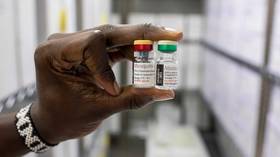Cabo Verde achieves malaria-free status
This marks a historic milestone in the fight against the mosquito-borne disease, according to the World Health Organization
Cabo Verde has become the latest African country to be declared malaria-free by the World Health Organization (WHO), joining Mauritius and Algeria as the continent’s only three nations to have achieved elimination status.
The international health body awarded a certificate of elimination of the disease to the archipelago state on Friday, describing the move as a significant achievement in global health. Mauritius, another island nation, was certified in 1973, while Algeria was verified in 2019.
“Cabo Verde’s success is the latest in the global fight against malaria and gives us hope that with existing tools as well as new ones, including vaccines, we can dare to dream of a malaria-free world,” WHO Director-General Dr. Tedros Adhanom Ghebreyesus said in a statement.
The WHO has designated malaria as one of the deadliest diseases in Africa. According to a recent report by the health agency, the continent accounted for an estimated 95% (234 million) of global cases and 96% (593,000) of related deaths in 2021. Children under the age of five accounted for nearly 80% of all malaria deaths in the region, it added.
Cabo Verde, which has faced severe malaria epidemics, adjusted its interventions in response to 2017 outbreaks in Santiago and Boa Vista, two of the country’s islands, where the disease had been present for decades.
The zero-malaria certification adds the West African nation to the list of 43 other countries and one territory globally that have achieved elimination status for the mosquito-borne disease. According to the WHO, approval is given to countries that have demonstrated that the chain of indigenous malaria transmission by Anopheles mosquitoes has been disrupted nationwide for at least three years. In addition, a country must demonstrate the ability to prevent transmission from resuming.
“It’s taken a long time to get to this point. In terms of the country’s external image, this is very good, both for tourism and for everyone else. The challenge that Cabo Verde has overcome in the health system is being recognized,” Cabo Verdean Prime Minister Ulisses Correia e Silva said.
Meanwhile, late last year, Mosquirix – the world’s first malaria vaccine – manufactured by British drugmaker GSK, was rolled out in Africa, with Cameroon receiving 331,200 doses. The Global Alliance for Vaccines and Immunization (GAVI), WHO, and United Nations Children’s Fund (UNICEF) have previously announced that 18 million doses of the vaccine will be delivered to 12 African countries by 2025. These include Benin, Burkina Faso, Burundi, Cameroon, the Democratic Republic of the Congo, Liberia, Niger, Sierra Leone, and Uganda, as well as Ghana, Kenya, and Malawi, which participated in a pilot program in 2019.






Comments are closed.